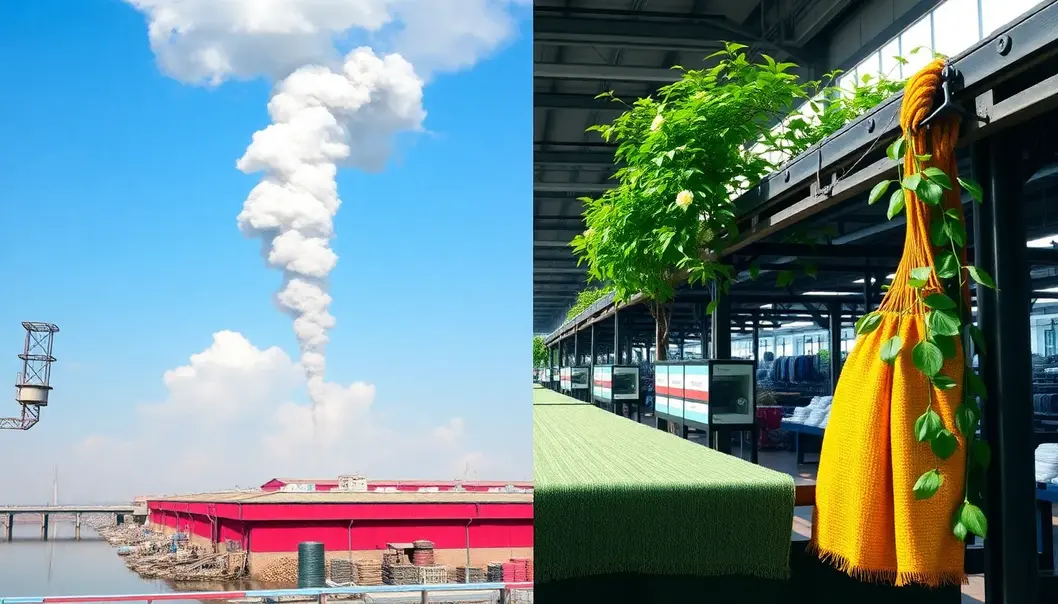As the climate crisis intensifies, environmentally conscious shoppers are becoming vital players in shifting the fashion industry’s impact. Sustainable fashion promotes the idea of utilizing resources responsibly while staying stylish. This movement addresses the full lifecycle of apparel from production to disposal, ensuring minimal harm to the environment. Consumers are called to support brands that prioritize ethical labor, use eco-friendly materials, and strive for carbon neutrality. Let’s delve into how sustainable fashion is evolving as a beacon of hope and how you, as a conscious shopper, can partake in this journey without compromising on style or ethics.
The Environmental Impact of Traditional Fashion

The traditional fashion industry has long been scrutinized for its overwhelming environmental footprint, characterized by practices that often neglect sustainability. Water pollution is one of the most profound consequences resulting from conventional fashion production methods. The extensive use of synthetic dyes and chemicals in the dyeing and finishing process is a major culprit. These chemicals are discharged untreated into water bodies, contaminating ecosystems and posing risks to marine life and human health. The fashion industry is notoriously known for being one of the top water-consuming industries, requiring immense quantities of water for fiber cultivation, such as cotton, and subsequent processing.
Excessive waste further amplifies the environmental burden of traditional fashion. The fast fashion model, which emphasizes rapid production cycles and disposable clothing, contributes significantly to this waste. Textiles are often discarded after minimal use due to poor quality or fleeting trends. This “throwaway culture” results in millions of tons of textile waste being sent to landfills each year. Such waste contributes to greenhouse gas emissions as fabrics decompose, releasing methane—a potent climate pollutant.
Carbon emissions are another area where the traditional fashion industry leaves a significant mark. The energy-intensive processes involved in manufacturing, transportation, and retail of garments contribute to substantial carbon footprints. Fast fashion’s emphasis on low-cost, high-turnover apparel accentuates this issue. The quick turnover rates demand frequent shipments of new clothing across global markets, increasing fossil fuel consumption and emissions.
Sustainable fashion emerges as a pivotal alternative to these damaging practices. It advocates for reduced resource usage, innovative recycling methods, and a decreased reliance on detrimental chemicals. Sustainable fashion stresses the importance of using eco-friendly materials such as organic cotton, hemp, and recycled fibers, which inherently have lower environmental impacts. In addition to materials, sustainable practices promote longevity and recyclability over disposability, aiming to shift consumer behavior towards valuing quality and durability.
To truly transform the fashion industry, embracing sustainable practices is not just an option but a necessity. By prioritizing environmentally conscious choices, the fashion sector can play a crucial role in mitigating climate change and conserving our planet’s resources. These changes can start small, whether they manifest through supporting local artisans who employ sustainable methods or choosing garments made from responsible materials. The ripple effect of adopting sustainable fashion promises a new era that honors both style and stewardship of the Earth.
Making Sustainable Choices: Tips for Conscious Consumers

Embracing sustainable fashion begins with being an informed and conscious consumer. It’s more than just purchasing eco-friendly products; it’s about transforming your entire approach to fashion. Start by researching brands you wish to support. Understanding a brand’s values, production methods, and supply chain transparency is crucial. Many brands publish sustainability reports or have dedicated sections on their websites outlining their environmental commitments. Look for certifications from recognized organizations, which can validate a brand’s sustainable practices.
When making purchases, consider quality over quantity. Investing in high-quality items might mean spending more upfront, but these pieces last longer, reducing the frequency of replacements. This shift not only minimizes waste but also promotes a more curated wardrobe. Evaluate the materials used in garments. Fabrics like organic cotton, bamboo, hemp, and Tencel are eco-friendly alternatives that require less water and pesticides compared to conventional textiles.
Second-hand shopping plays a significant role in sustainable fashion. By choosing pre-owned clothing, you reduce demand for new production and keep garments out of landfills. Thrift stores, vintage markets, and online resale platforms offer unique pieces that add character to your wardrobe. Swapping clothes with friends or participating in community swap events can also be a fun and sustainable way to refresh your closet.
Finally, advocate for brands with transparent practices by providing feedback and encouraging them to maintain or increase their sustainability efforts. Consumers play a pivotal role in driving demand for sustainable fashion, and by making conscious choices, we contribute to a more sustainable future.
Final words
Sustainable fashion offers a path towards a healthier planet, where personal style meets environmental responsibility. By making informed choices and supporting ethical brands, consumers can significantly reduce their fashion footprints. Embrace your role as an eco-conscious shopper, and contribute to a movement that values sustainability as much as style. Each conscious purchase represents a step towards a more sustainable future.
Ready to transform your wardrobe sustainably? Explore our exclusive collection of eco-friendly fashion today!
Learn more: https://www.greenfashionhub.com/explore
About us
Green Fashion Hub offers a curated selection of stylish, eco-friendly clothing options. Our collections are sourced from brands that prioritize sustainable practices, ethical labor, and environmentally friendly materials. With Green Fashion Hub, you can redefine your style with confidence and commitment to sustainability.

